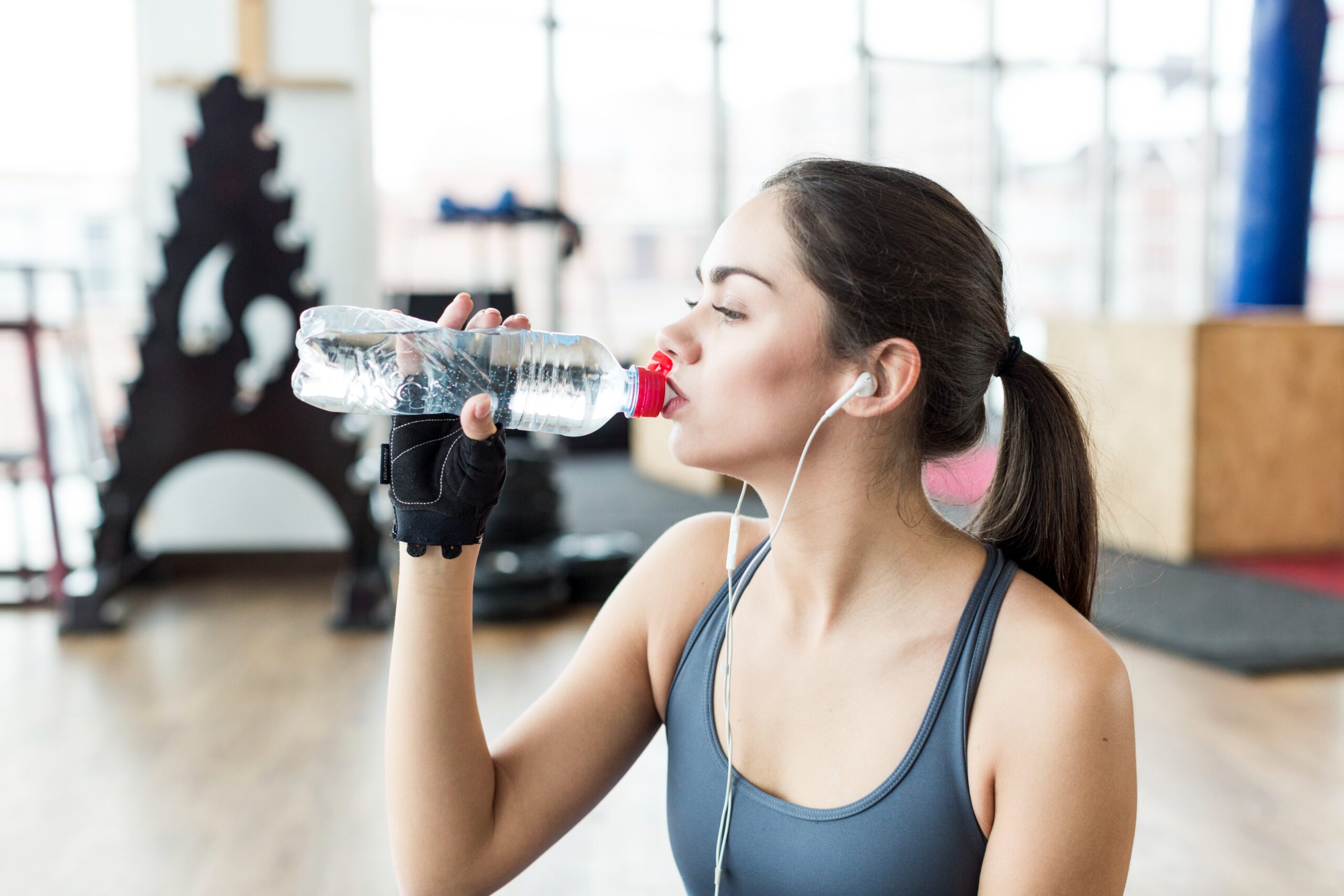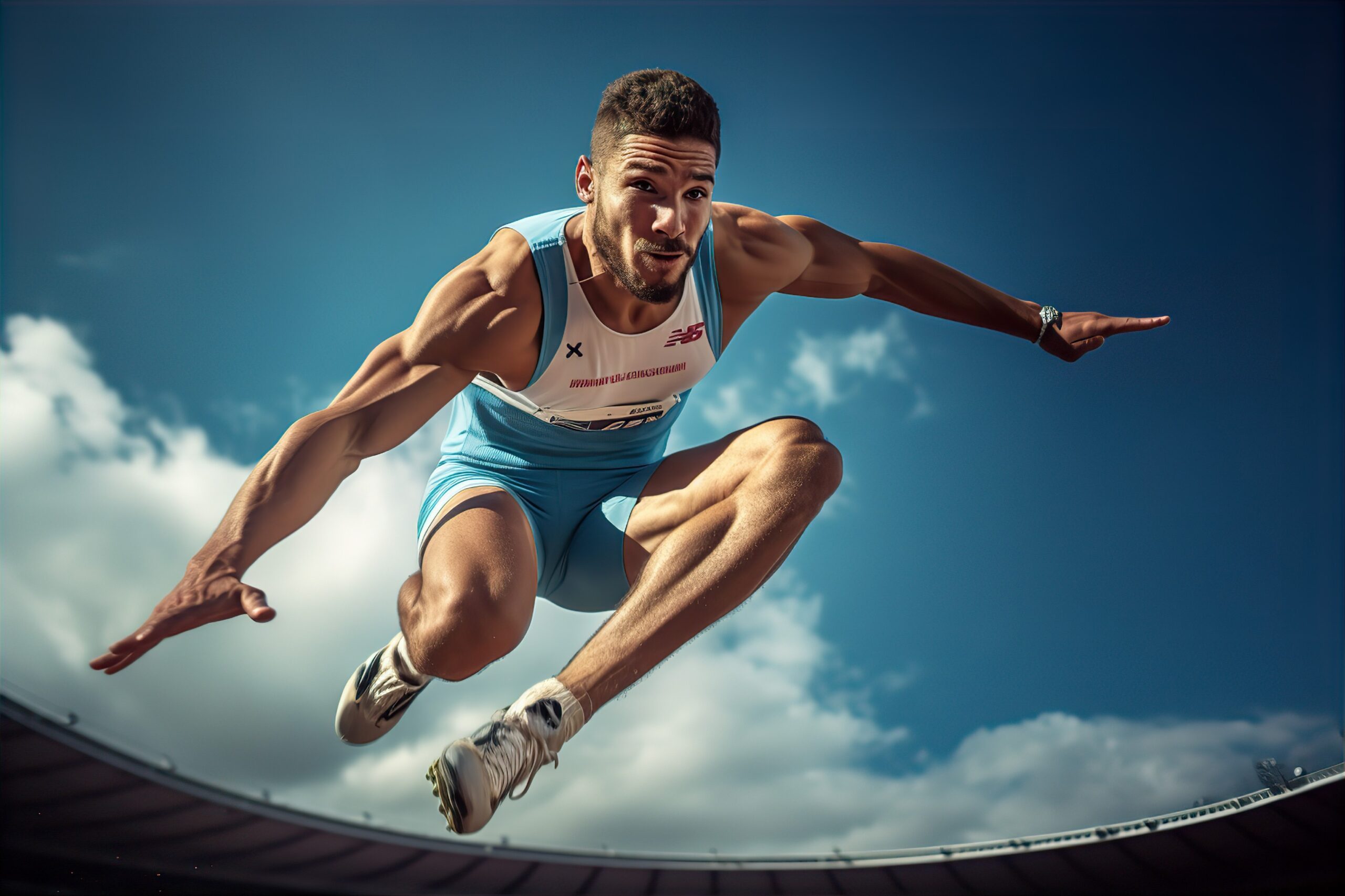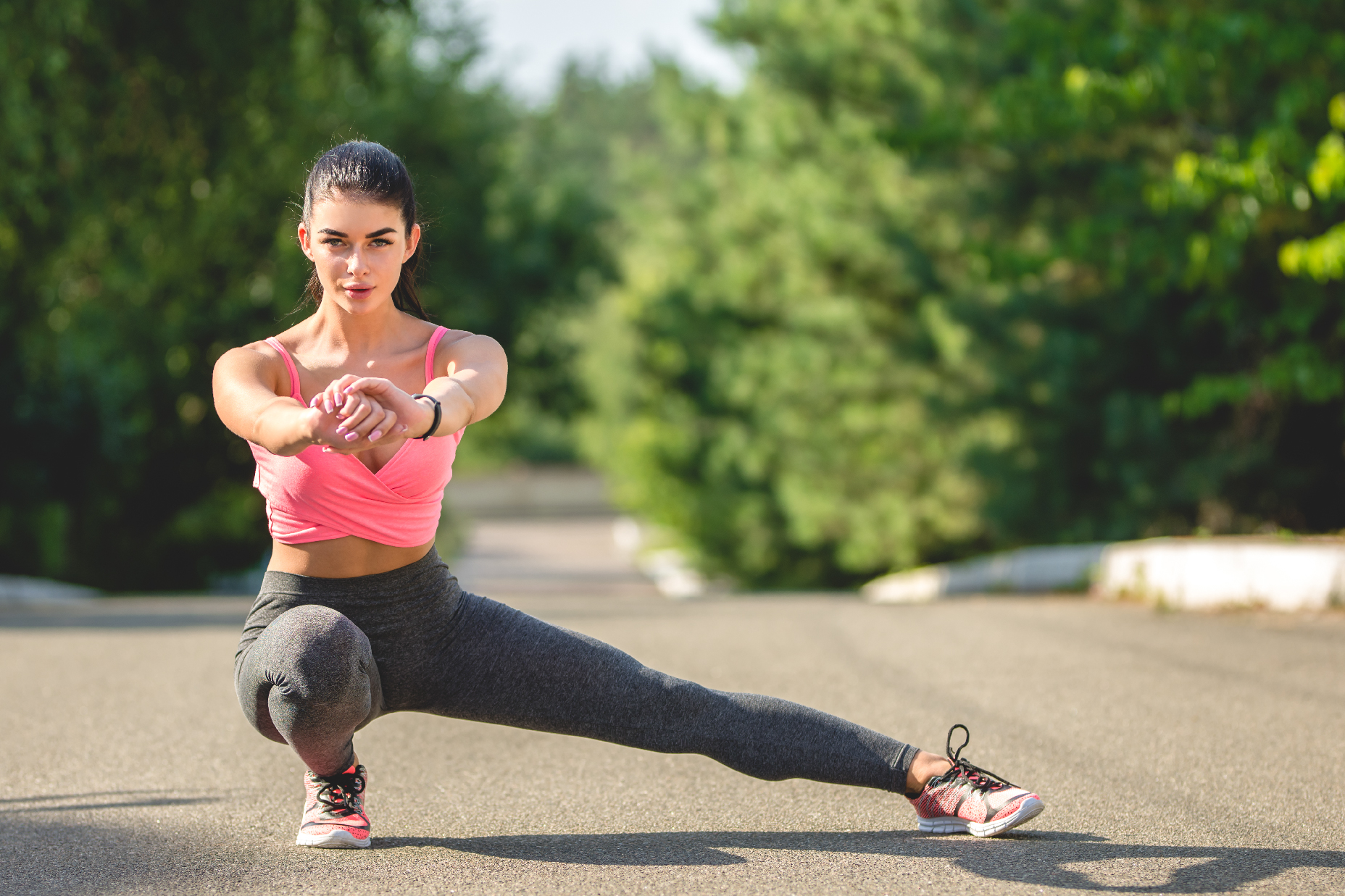The only thing keeping you fitness enthusiasts from turning into human raisins while you sweat it out on the treadmill is water. Hydration plays a critical role not only in maintaining overall performance but also in supporting gut health, as you progress with your fitness goals. Training sessions can place significant stress on the body, including the digestive system, making it essential to adopt effective hydration strategies. In this article, we will explore the importance of hydration for gut health during training sessions and discuss practical strategies to optimize hydration and support gut wellness.
The Link Between Hydration and Gut Health
Before we dive into the various strategies for maintaining hydration, it’s essential to grasp the intricate relationship that exists between hydration and gut health. Dehydration doesn’t just leave you feeling parched; it can also wreak havoc on your digestive system. When your body lacks sufficient hydration, it can impair the function of your digestive system. This impairment can manifest in various uncomfortable symptoms, such as constipation, bloating, and overall gastrointestinal discomfort.
On the contrary, ensuring that you’re adequately hydrated can work wonders for your digestive health. Optimal hydration supports smooth digestion by facilitating regular bowel movements, aiding in the absorption of vital nutrients from your food, and safeguarding the mucosal lining of your digestive tract. So, maintaining proper hydration levels is a cornerstone of digestive wellness and that is exactly why you, as a fitness enthusiast, need a good hydration plan.
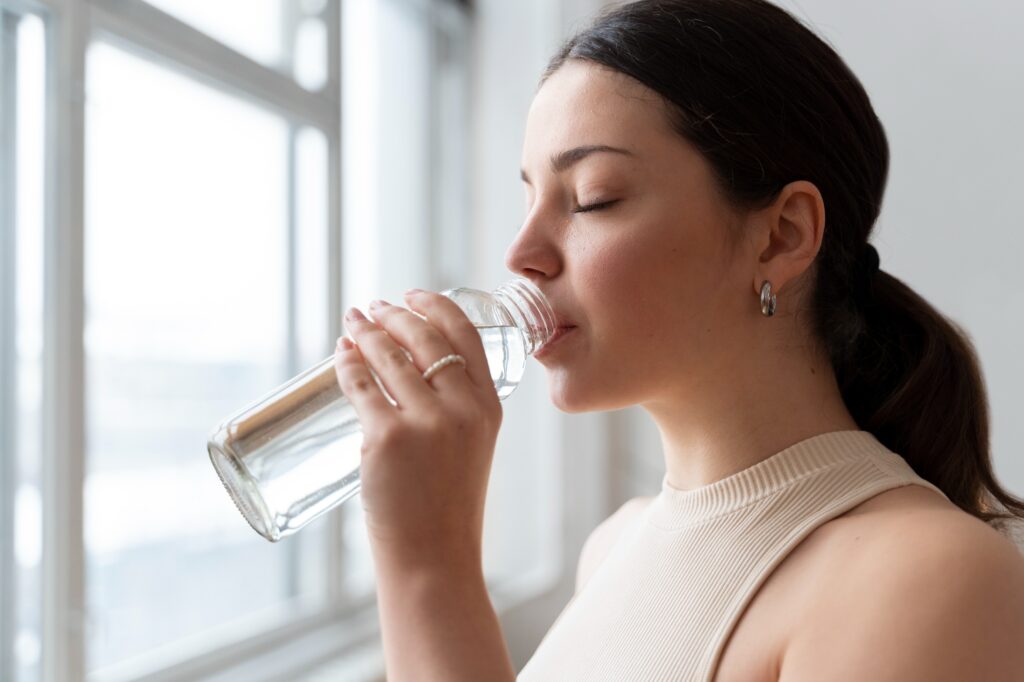
Key Strategies for Hydration During Training Sessions
As stated above, maintaining proper hydration levels is important for optimizing performance and preventing fatigue during training sessions. Here are some key strategies to ensure you stay hydrated and perform at your best.
1. Pre-Hydration
Proper hydration should begin well before the training session starts. Aim to drink fluids throughout the day leading up to your workout to ensure adequate hydration levels. Opt for water, herbal teas, and electrolyte-rich beverages to replenish fluids and electrolytes lost through sweat.
2. Hydration During Exercise
During training sessions, prioritize regular fluid intake to prevent dehydration and support performance. The American College of Sports Medicine recommends consuming 5-10 ounces of fluids every 15-20 minutes during exercise, depending on individual factors such as sweat rate and environmental conditions. Choose isotonic sports drinks containing carbohydrates and electrolytes to replenish energy stores and maintain electrolyte balance.
3. Electrolyte Balance
Electrolytes, such as sodium, potassium, and magnesium, play a crucial role in maintaining fluid balance and supporting muscle function during exercise. In addition to consuming electrolyte-rich beverages, incorporate electrolyte-rich foods into your pre- and post-workout meals. Foods like bananas, spinach, yogurt, and nuts can help replenish electrolytes and support hydration.
4. Post-Workout Hydration
After completing your training session, prioritize rehydration to replace fluids lost through sweat and support recovery. Aim to drink at least 16-24 ounces of fluids for every pound of body weight lost during exercise. Include a combination of water and electrolyte-rich beverages to optimize hydration and replenish electrolyte stores.
5. Listen to Your Body
Pay attention to thirst cues and listen to your body’s signals during training sessions. Thirst is a reliable indicator of dehydration, so if you feel thirsty, it’s essential to drink fluids promptly. Additionally, monitor urine color and frequency as a simple way to assess hydration status. Pale yellow urine indicates adequate hydration, while darker urine may indicate dehydration.
6. Individualized Approach
Hydration needs can vary significantly depending on factors such as body size, sweat rate, exercise intensity, and environmental conditions. Experiment with different hydration strategies during training sessions to determine what works best for you. Keep a hydration journal to track fluid intake, urine output, and performance outcomes to refine your approach over time.
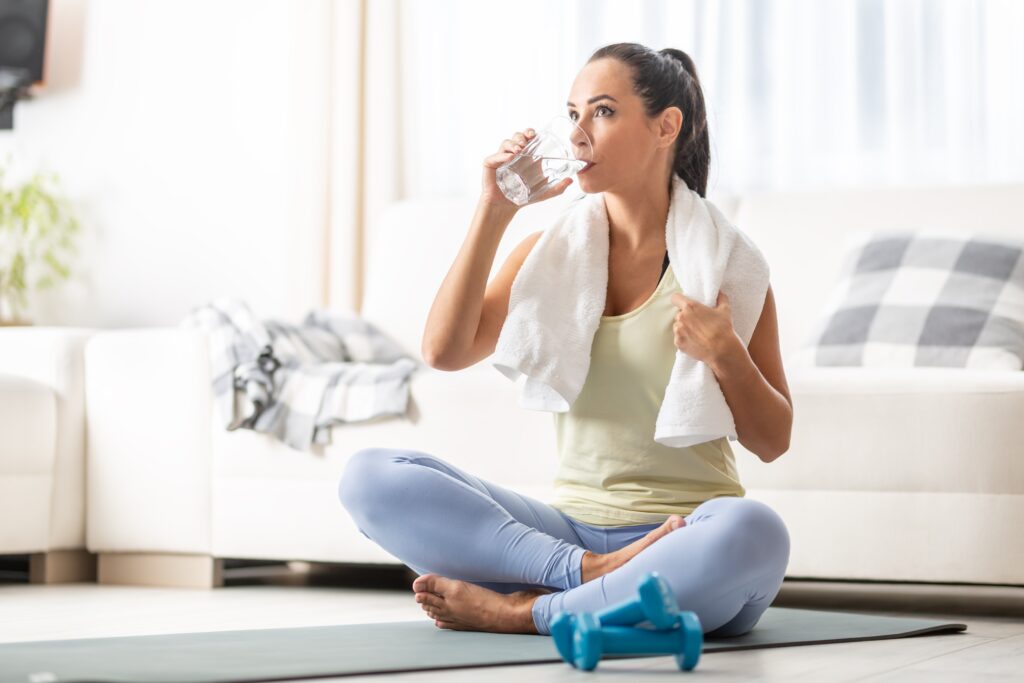
So, next time you’re hitting the gym or breaking a sweat, remember to hydrate like your gut depends on it – because it does! Maintaining optimal hydration is essential for supporting gut health and maximizing performance during training sessions. By implementing effective hydration strategies, such as pre-hydration, electrolyte balance, and post-workout rehydration, you can support digestive wellness and enhance athletic performance. So, drink up, stay hydrated, and let your gut be your greatest ally in the pursuit of fitness and wellness!
REFERENCES
1. NAH – https://pubmed.ncbi.nlm.nih.gov/9303999/
2. Health – https://www.health.com/fitness/hydration-and-exercise-how-to-get-it-right
3. Family Doctor – https://familydoctor.org/athletes-the-importance-of-good-hydration/
4. Bupa – https://www.bupa.com.au/healthlink/health-fitness/goals/five-ways-to-stay-hydrated-during-exercise
FAQ’s
Q: What are the 3 workout hydration guidelines?
A: Stay hydrated before, during, and after exercise. Pre-hydrate by drinking fluids beforehand, maintain hydration levels during activity by sipping water regularly, and rehydrate post-exercise to replace fluids lost through sweat.
Q: How much water should we drink in a day?
A: The recommended daily water intake varies but generally, aim for about 8 glasses (64 ounces) per day, or more depending on factors like body size, activity level, and climate.
Q: Can I drink water in between rigorous exercise?
A: Yes, it’s essential to stay hydrated during intense workouts. Sip water in between exercises to replenish fluids lost through sweat and maintain hydration levels to support performance and prevent dehydration.
Q: How much water is safe to drink during exercise?
A: The amount of water to drink during exercise depends on factors like exercise intensity, duration, and individual sweat rate. Generally, aim to drink 5-10 ounces every 15-20 minutes to stay hydrated without overloading the stomach.
Q: What problems can drinking water cause during exercise?
A: Drinking too much water during exercise can lead to a condition called hyponatremia, where blood sodium levels become dangerously low. Symptoms include nausea, headache, confusion, and in severe cases, seizures or coma.
Q: What are the 4 goals of hydration?
A: The goals of hydration include maintaining fluid balance, supporting optimal physical and cognitive performance, regulating body temperature, and promoting overall health and well-being through proper hydration practices.
